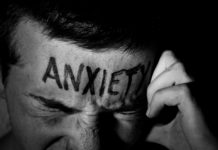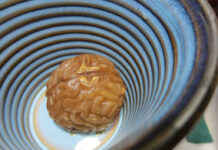DxSummit Officially Launches
As co-chair of the Diagnostic Summit Committee of the Society for Humanistic Psychology, I am pleased to announce that today we officially launch the Global Summit on Diagnostic Alternatives (DxSummit.org), an online platform for rethinking mental health. Our goal is to provide a place for a collegial and rigorous discussion of alternative ways to conceptualize and practice diagnosis. Today's launch is marked by the appearance of our first eight posts. These posts come from a variety of prominent people in the field, each offering a unique perspective on the current state of diagnosis and where we might take things as we move forward.
Emotions: Keys to Our Freedom
Living in this very complex, demanding, stratified modern society has produced an epidemic of personal alienation. There is often a tragic gulf between our emotional experience and our awareness of it. 1 in 5 Americans are now taking a psychiatric medication. 1 in 4 women are now taking a psychiatric medication. All of those medications suppress, modify, or block emotion.
Psychedelics and Depression
The Sunday New York Times Magazine special edition, "Health is All in Our Minds," explores the use of psychedelic drugs to help people cope...
What Does Social Justice Really Mean for Psychologists?
Without clarity and consensus around what social justice means, psychologists risk perpetuating injustices that undermine their stated mission.
When Minds Crack, The Light Might Get In: A Spiritual Perspective on Madness
You can’t go back to mundane ways of seeing the world after very dark things happen. Trauma cracks open a hole in our lives and in our minds, throwing us into the zone where we face the big spiritual questions. Bad ideas can get in when things open up like that. But it’s also possible that something new and positive can get in.
New Data on the Adverse Effects of Meditation and Mindfulness
Study reports on the less-examined findings of difficult and painful meditation-related experiences.
Is Anxiety to Blame for Missed School?
A new systematic review illustrates features of the relationship between anxiety and school attendance patterns.
The Unsung Psychiatric Impact of Strep Throat
A sea change is needed in the evaluation of children with perceived psychological disturbances. Parents are told that their child has a fictitious biochemical imbalance in the brain while real medical disorders are overlooked. In our family's case, it was Pediatric Autoimmune Neuropsychiatric Disorder Associated with Strep (PANDAS).
Constructing Alternatives to the DSM: An Interview with Dr. Jonathan Raskin
Dr. Raskin discusses psychotherapists’ dissatisfaction with current psychiatric diagnostic systems and explores alternatives.
Trauma, First-Episode Schizophrenia, and Brain-Derived Neurotrophic Factor
A team of Egyptian researchers found, in a sample of 74 outpatients, a relationship between trauma and first-episode schizophrenia, with a "mediating" role of...
Largest Survey of Antidepressants Finds High Rates of Adverse Emotional and Interpersonal Effects
I thought I would make a small contribution to the discussion about how coverage of the recent airline tragedy focuses so much on the supposed ‘mental illness’ of the pilot and not so much on the possible role of antidepressants. Of course we will never know the answer to these questions but it is important, I think, to combat the simplistic nonsense wheeled out after most such tragedies, the nonsense that says the person had an illness that made them do awful things. So, just to confirm what many recipients of antidepressants, clinicians and researchers have been saying for a long time, here are some findings from our recent New Zealand survey of over 1,800 people taking anti-depressants, which we think is the largest survey to date.
The Hearing Voices Movement: Beyond Critiquing the Status Quo
We have just celebrated the anniversary of the rapidly expanding global Hearing Voices Movement which was founded more than twenty-five years ago following the ground-breaking research of Professor Marius Romme and Dr Sandra Escher. Romme and Escher have advocated for a radical shift in the way we understand the phenomenon of Hearing Voices; in contrast to traditional, biomedical psychiatry which views voices as an aberrant by-product of genetic, brain and cognitive faults, their research has firmly established that voices make sense when taking into account the traumatic circumstances that frequently provoke them.
Western ‘Depression’ is Not Universal
Derek Summerfield, consultant psychiatrist at South London and Maudsley National Health Service Foundation Trust, challenges the assumption that Western depression is a universal condition.
Brain Scans Cannot Differentiate Between Mental Health Conditions
A new study analyzing over 21,000 participants found that differences in activation of brain regions in different psychological “disorders” may have been overestimated, and confirms that there is still no brain scan capable of diagnosing a mental health concern.
Fighting for the Meaning of Madness: An Interview with Dr. John Read
Akansha Vaswani interviews Dr. John Read about the influences on his work and his research on madness, psychosis, and the mental health industry.
Researcher Critically Examines Movements for Global Mental Health
China Mills raises concerns that global mental health movements obscure social determinants of health and naturalize Western mental health concepts.
Psychotropic Medications Serve as Powerful Tools for U.S. Military, Imperialism
Ethnographic research sheds light on extensive psychopharmaceutical use by soldiers in post 9/11 U.S. wars.
Pain Predicts Psychopathology
Researchers from Italy, Hungary, and the U.S. investigated the extent that the subjective experience of pain in 575 psychiatric outpatients (without comorbid physical diagnoses)...
Genetics of Bipolar Disorder
Research from the Semel Institute for Neuroscience and Human Behavior at USC finds that "The standard concept of genetic testing includes at least three...
Talk Therapy Can Cause Harm, Too
The Association for Psychological Science (APS) was founded twenty years ago by psychologists and neuroscientists who were dismayed by trends in the American Psychological Association (APA). The APA had lost its old single-minded focus on the search for empirically based answers to psychological questions. This may have followed from the fact that the APA’s membership encompassed an ever-larger percentage of practicing psychologists with many immediate, practical concerns. Yet it is these very clinicians who are in such dire need of empirically validated procedures. It might be time to summarize newer empirical literature that challenges the assumption that the mere expression of emotion is helpful.
How Reliable is the DSM-5?
More than a year on from the release of DSM-5, a Medscape survey found that just under half of clinicians had switched to using the new manual. Most non-users cited practical reasons, typically explaining that the health care system where they work has not yet changed over to the DSM-5. Many, however, said that they had concerns about the reliability of the DSM, which at least partially accounted for their non-use. Throughout the controversies that surrounded the development and launch of the DSM-5 reliability has been a contested issue: the APA has insisted that the DSM-5 is very reliable, others have expressed doubts. Here I reconsider the issues: What is reliability? Does it matter? What did the DSM-5 field trials show?
The DSM-5 Field Trials: Inter-Rater Reliability Ratings Take a Nose Dive
The American Journal of Psychiatry (January, 2103) recently published a series of articles that analyzed the outcomes of the field trials that were conducted by the DSM-5 Task Force, to determine the inter-rater reliability of the multiple diagnostic categories that will comprise the DSM-5. A table below tracks the downward progression of inter-rater reliability from DSM-III through DSM-5.
Effects of Exercise on Depression Underestimated, Review Finds
A new meta-analysis finds that the large antidepressant effects of exercise may have been underestimated in previous reviews. This latest report, published this month...
Man Jumps, News at…?
It is time for a new understanding of suicidal feelings and actions. Perhaps a more open dialogue, without fear of sirens and police and involuntary hospitalizations, would have made a difference for one young man here in Asheville last month. Perhaps more public local conversation would have saved some of the 45 lives we lost here in Buncombe County in 2010. Perhaps a more public and safe national conversation would have saved some of the 22 veterans who died from suicide every day in 2010.
The Psychology of Inequality
From The New Yorker: A number of studies show that much of the damage done by being poor comes not from the conditions of poverty itself,...





















